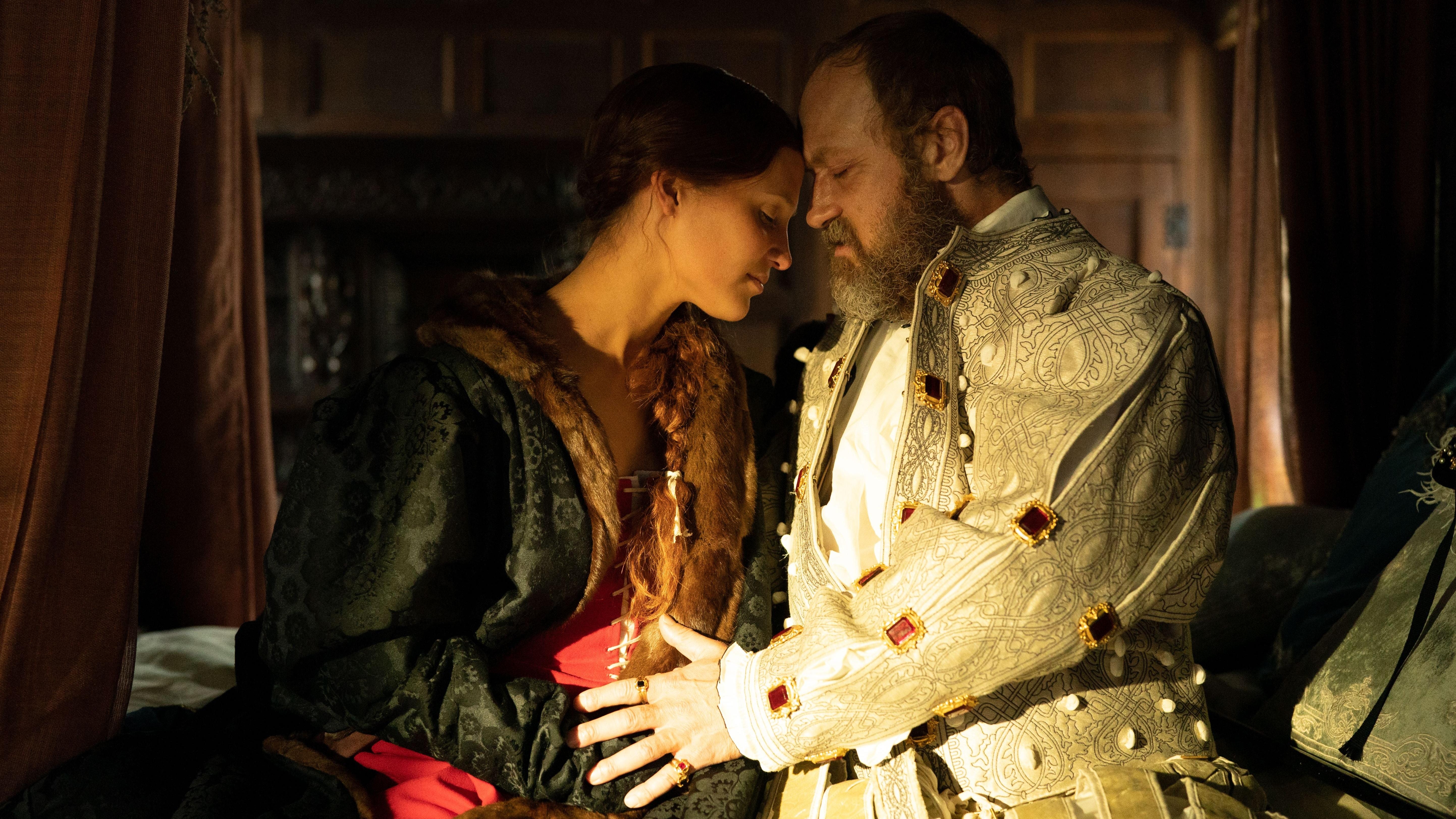Firebrand review: Alicia Vikander and Jude Law reign over a familiar historical narrative
Director Karim Aïnouz infuses energy and beauty into the Tudor tale, but the screenplay fails him

The physicality of the relationship between King Henry VIII (Jude Law) and his sixth and final wife Catherine Parr (Alicia Vikander) is strongly present throughout director Karim Aïnouz’s Firebrand. This is a couple that’s always sparring, whether when having sex or fighting. The sex is ugly, since the primary mission is not love or pleasure but simple procreation. The fighting seems more fun, if no less taxing on both. They literally wrestle for power and for one’s survival over the other. The film they’re in, unfortunately, does not deliver on the promise of these intense physical interactions.
Screenwriters Henrietta and Jessica Ashworth adapt Elizabeth Fremantle’s 2013 novel Queen’s Gambit into Firebrand, which depicts the last few months of Henry VIII’s reign. While Henry is away at war, Parr rules as queen regent. She’s more tolerant of the activists who oppose the king’s reign of terror. Yet, as is the case with every story about the House of Tudor, there’s always someone scheming behind the scenes. Here, it’s Catholic bishop Stephen Gardiner (Simon Russell Beale), who wants to depose the Protestant Parr and ultimately make the King murder her like he did some of his other wives. On Parr’s side are the brothers of one of those murdered wives, Jane Seymour: Thomas (Sam Riley) and Edward (Eddie Marsan), uncles to Henry’s heir Edward, who considers Parr a surrogate mother.
Aïnouz (Futuro Beach, Invisible Life) is an exciting choice for this material, though nothing in his oeuvre makes him an obvious pick to helm a historical English epic. In his previous work, the Brazilian filmmaker has infused pathos and lush colors into outsize melodramatic narratives. He knows how to capture bigger-than-life emotions and make them palpably naturalistic. In Firebrand, he gives his actors the space to infuse dexterity into both movement and dialogue delivery. There’s an active energy (and little decorum) to the performances, something absent in similar period productions whether on film or TV. However, this is still a story that requires many scenes to be set in rooms, where the only action is talking about the future of the English throne. The screenplay fails to bring any ingenuity in structure or dialogue, thus diminishing the power of Aïnouz’s characteristically operatic filmmaking.
Firebrand is filled with overripe cinematography. Using just candlelight—or perhaps more accurately, the illusion of only using candlelight—in many scenes, Hélène Louvart’s camera sensitively frames its subjects. The French DP, who collaborated with Aïnouz before in the aforementioned Invisible Life and shot films like La Chimera and Never Rarely Sometimes Always, grants invigorating life to tableaus that look like paintings. The story might be about scheming hypocrites and despotic monarchs, but the images couldn’t be more beautiful.
Louvart shoots the film’s two stars with compassionate panache, allowing the space for the tiniest flicker of emotion to become apparent to the audience. Throughout, Vikander carries the film with her subtle and controlled performance. Her voice never rises and remains steady no matter what quandary Parr goes through. Her Parr seems modern though, like a contemporary boss comfortable in her position. It’s a fitting portrait of a woman the film presents as ahead of her time. However, for some parts of Firebrand, while Parr is unmoored, seemingly at the end of her rope, Vikander remains stoic. On the other side of this, Law plays a foul Henry in his last days with a distinctive attention to his body. This king is sick, constantly in pain but still trying to clutch to life. Law gives him a hulking if feeble presence that starts to dwindle ever more as the story unravels.
With a straightforward script that does not allow for nuance or criticism, Firebrand wastes an opportunity to ridicule English monarchs’ schemes to behead their adversaries and their insistence on hereditary succession. Instead, apart from a twist ending that might make history buffs question the film’s authenticity, the listless screenplay sticks to a familiar historical interpretation of this story, holding back any attempts by Aïnouz to invigorate the form.